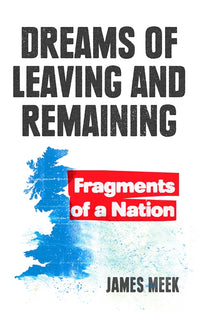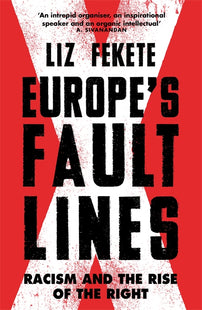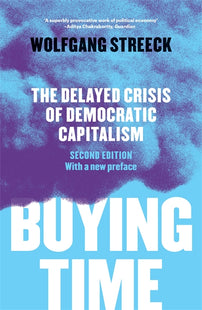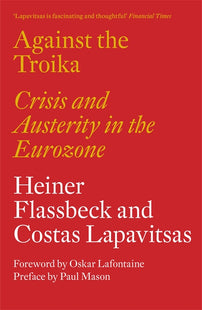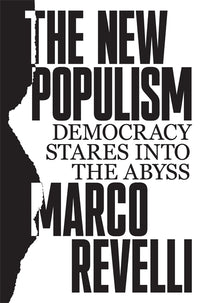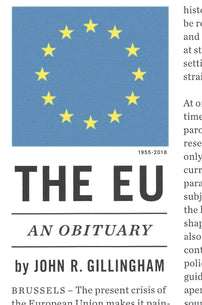Brexit 2020
British politics, since the 2017 general election, has been dominated by Brexit. What is at stake in the debate, and what are the possible outcomes after December 12th?

The Brexit crisis doesn’t defy analysis but it is accumulating loose ends. Since the country last went to the polls, the extraordinary ideological polarisation between the governing Conservatives and Labour opposition has been confined to a proxy debate about the technicalities of EU withdrawal. Johnson’s Withdrawal Agreement Bill, said Corbyn, would ‘decide the future of our country, of our economy and of the economic model we follow’.[1] With apologies to PG Wodehouse, it’s been like running a mile in tight shoes. The general election has come as a relief.
I
Labour characterised the severance agreement and non-binding Political Declaration, sealed by Johnson in Brussels on 17 October, as ‘a charter for deregulation and a race to the bottom’, less palatable than Theresa May’s original package, which had at least contained a commitment to ‘non-regression’ of environmental and labour standards in the customs-union backstop. Absent from the new deal, Corbyn warned MPs, was any legal mechanism for ‘dynamic alignment with the European Union on consumer rights, environmental protections, workers’ rights and much else besides’. In sum, the Prime Minister had failed to ‘offer a safety net’.[2]
Hope for European mitigation of a particularly aggressive domestic strain of neoliberalism has been a constant of British labourism since it embraced the Social Chapter of Commission president Jacques Delors—his tranquilising adjunct to the Single Market—during Thatcher’s third term. The increasing marginality of actually existing European social policy has passed largely unnoticed.[3] But Corbyn’s suspicions of a deregulatory undertow to Johnson’s post-withdrawal agenda appeared swiftly vindicated by a Financial Times report that the Conservative administration ‘was open to significant divergence, even though Brussels is insisting on comparable regulatory provisions’. According to a leaked government paper, reference in the Political Declaration to a ‘level playing field for open and fair competition’ left ‘room for interpretation’.[4]
How likely is it that the domestic economic rebound of EU withdrawal is an accelerating neoliberalism? Among pro-globalisation Atlanticists of the no-deal right, Conservative MEP and Sunday Telegraph columnist Daniel Hannan urges a regulatory standstill to force existing consumer protections into obsolescence, derestriction of shale gas and localisation of tax and spending to motivate reductions in public provision: the foundation stones of a ‘deregulated, offshore Britain’ with an enlarged commitment to NATO.[5] Former Johnson mayoral adviser Gerard Lyons opposes ‘blind deregulation’ and judges a ‘race to the bottom’ on working conditions electorally unviable, but agrees on the need to intensify the post-2010 austerity regime, infrastructure spending excepted, and that the UK ‘must consolidate its leadership role [sic] within NATO’.[6] Patrick Minford of the Economists for Free Trade, whose early-computer Liverpool Model purported to forecast the success of Thatcher’s monetarist policies—he concedes he was ‘too optimistic’ about the amount of unemployment her industrial shakeout would produce—advocates unilateral tariff reduction to force UK producers into line with world prices, producing another gale of destruction in the country’s much reduced industrial sector.[7]
The weightier neoliberal centre, on the other hand, judges the UK sufficiently ahead of the deregulatory curve to prize access to European markets above the selective divergence of product or labour standards that a more arms-length relationship would allow. The Confederation of British Industry warns that ‘opportunities are limited and are vastly outweighed by the costs that will be incurred if the UK’s rules change so much that it reduces smooth access to the EU’s market’.[8] The Open Europe think tank, excoriated by the Economist for drip-feeding Eurosceptic news items to the UK press, calls for regulatory alignment in manufacturing and ‘two-way regulatory cooperation’ in financial services, reflecting the Bank of England’s concerns that the City of London—provider of a quarter of all financial services in the EU-27, including 90 per cent of interest-rate swaps—needs to be in a position to influence regulatory frameworks.[9] The City should be able to secure regulatory equivalence from Brussels, sufficient to leave Britain ‘up to its waist in the acquis’, anticipates the FT.[10] Open Europe wants deregulation back on the political agenda if a deep partnership with the EU-27 fails to materialise, having identified £12.8bn of ‘politically feasible’ annual savings—half its total wish-list and equivalent to 0.7 per cent of GDP—from scrapping the Agency Workers Directive, curtailing the Working Time Directive and abandoning EU renewable-energy targets. But the FT thinks it ‘would be a doddle’ for trade unions and opposition parties to campaign against any departure from EU labour laws.[11]
II
The Labour alternative isn’t so hard to fathom as the media pretends. In a speech in Coventry in February 2018, Corbyn set out his stall for a ‘bespoke, negotiated relationship’ involving a customs union and tariff-free access to the Single Market. He called on the Theresa May government to accept ‘shared institutions and regulations, with no new impediments to trade, and common rights, standards and protections as a minimum’. Freedom of movement, shadow Brexit secretary Kier Starmer added, ‘would have to be part of the negotiations’. Corbyn was adamant that his proposed relationship with the EU ‘would need to ensure we can deliver our ambitious economic programme’—a warning shot at European state-aid restrictions. ‘The idea that competition rules work for the benefit for all—we do not believe to be the case’, he told reporters.[12]
Are they sailing too close to the wind? In the New Statesman, Grace Blakeley argues that ‘the essence of the case for Lexit is that it is not possible to implement socialism without a confrontation with capital and its representatives in institutions such as the EU’. In Tribune, Costas Lapavitsas urges Labour to make ‘radical amendments’ to the Johnson deal, including ‘clear terms allowing for industrial policy’, and to stop flirting with ‘Remain and Reform’. ‘There can be no socialist radicalism today within the European Union’, he insists. Varoufakis’s Democracy in Europe Movement 2025, which McDonnell has endorsed, is merely the ‘failed Syriza strategy writ large’, oblivious to the class interests and national-hegemonic structures that ‘Europe’ actually stands for.[13]
Labour’s gamble seems to be that unlike Eurozone states on the southern periphery, beholden to Brussels for approval of fiscal measures through the Stability Pact and Six-Pack rules and to Frankfurt for monetary questions and sovereign-debt management, a left government in London could go its own way without damaging interference from these quarters. The Bank of England and the financial markets, not to mention the Federal Reserve, are another matter: the Economist has sketched out five reasons why a John McDonnell Treasury would be met with capital flight.[14] Whereas McDonnell tries to placate the City by ruling out capital controls, Grace Blakeley argues that they should be ‘a central pillar of any Brexit deal’, and Joe Guinan and Thomas Hanna underline that loss of passporting rights for UK-based finance houses presents a historic opportunity to ‘vastly shrink speculative trading’ and the asset-price inflation that goes with it.[15]
In terms of party strategy, Labour’s leadership of the opposition at Westminster to the Conservative withdrawal agreements has driven one prime minister from office and forced the governing majority of another below the Commons waterline. One side effect of the long stalemate, however, has been a fraying of party discipline in a trial run for parliamentary obstruction of a Corbyn government .‘Anti-Corbyn Labour would find itself in the position the [Conservative] European Research Group does today, able to hold its own government to ransom’, anticipates the Spectator.[16] The impasse has also given diehard Labour Remain MPs, obeying Lord Salisbury’s dictum that ‘delay is life’, time to wear down Corbyn’s resolve to respect the verdict of 2016.[17]
Since the 1958 Treaty of Rome, no popular referendum has been allowed to reverse the top-down project of European integration.[18] The Danes voted down Maastricht but then accepted it with opt-outs; the Irish were sent back to the polling booths after rejecting the treaties of Nice and Lisbon; the French and Dutch torpedoed the EU Constitution only to have the same provisions foisted on them by intergovernmental compact. Other than derogations for Britain—negotiated by Blair, who pledged in 2005 to put the Constitutional Treaty to a referendum, and never did—the Lisbon Treaty was virtually identical to its rejected predecessor. ‘The proposals in the original Constitutional Treaty are practically unchanged’, acknowledged Valéry Giscard d’Estaing, author of the aborted Constitution. ‘They have simply been dispersed through old treaties in the form of amendments. Why this subtle change? Above all, to head off any threat of referenda by avoiding any form of constitutional vocabulary.’[19] Blair is now of course a firm believer in a second Brexit vote to annul the first, brazenly insisting: ‘It’s not an outrage to go back to the people’.[20]
III
Lexit is a compound of two elements, whose relative weight varies. One is the civic-democratic case against unaccountable decision-making: ‘we shall always be told that policy is being made somewhere else’, Corbyn complained of Maastricht.[21] The other is a strategic-ideological stance toward a Continental neoliberal power structure. Those who gravitate towards the first pole may take whatever form of Brexit they can get: the gain in transparency is incremental. Cambridge political scientist Chris Bickerton, leading light of The Full Brexit, the main domestic Lexit platform, was prepared to sign off on the Theresa May deal as the ‘first, faltering, but necessary step in the restoration of British sovereignty’.[22] For Lapavitsas, on the other hand, Johnson’s Political Declaration, looking forward to a comprehensive free-trade agreement, cannot be accepted as it ‘makes no bones about its uncompromising neoliberal outlook’.[23]
The spirit animating Lapavitsas is broadly that of the pan-European Lexit Network, which began blogging after Corbyn’s prospects were boosted by a strong showing in the 2017 general election. ‘With Brexit, a new historical situation arises’ declares Christophe Ventura in its opening salvo. ‘The European Union is dead as an avatar of Europe. What killed it were its policies, its institutions and its governments.’ Greece has been reduced to a protectorate of the Troika; Portugal is threatened by ratings agencies and a bond strike by the ECB. ‘Until now, we could say that the EU did not have a monopoly on Europe. Today we must say that the EU is disqualified as “being Europe”.’ Voluntary cooperation between sovereign countries must replace this prison-house.[24]
It remains, as Ventura concedes, a long shot. Not even the post-2016 British left has ‘synchronised’ on a Lexit platform.[25] Through its opt-outs and insular dominant culture, the UK is so far outside the post-Maastricht EU core against which the Lexit Network polemicizes, that any In/Out referendum presents a false binary. But the issues manifested in the Brexit crisis are real enough, and depending on how the cards fall on 12 December, all the futures sketched above could still be in play. The most robust polling I have seen, conducted ahead of the election campaign, and before Farage pivoted his Brexit Party against Labour, predicted another hung Parliament.[26] Labour might do worse than that, or better. It’s an odd sensation, for anyone old enough to remember New Labour in its pomp, to be contemplating a parliamentary road to socialism. During the Maastricht debate Tony Benn insisted on ‘the power of the ballot box to change our destiny’.[27] Fingers crossed.
Tom Hazeldine is an editor at New Left Review. His latest book The Northern Question is forthcoming from Verso.
[1] HC Deb, 22 October 2019, c845.
[2] HC Deb, 22 October 2019, cc842–4.
[3] For its trajectory: Wolfgang Streeck, ‘Progressive Regression: Metamorphoses of European Social Policy’, New Left Review 118, July–August 2018.
[4] ‘Fears Rise over Post-Brexit Workers’ Rights and Regulations’, FT, 25 October 2019.
[5] ‘Membership of Nato or the G20 may mean ceding power in certain areas, but it emphatically doesn’t mean ceding sovereignty’: Daniel Hannan, What Next, London 2016, p. 73.
[6] Liam Halligan and Gerard Lyons, Clean Brexit, London 2017, p. 16.
[7] ‘From Project Fear to Project Prosperity’, Economists for Free Trade ,September 2017; Andy Beckett, Promised You a Miracle, London 2015, chapter 3.
[8] ‘Smooth Operations’, CBI, April 2018, p. 4. UK firms ‘are not seeking widespread change of EU-derived employment legislation after Brexit, and are instead primarily concerned about the changes to regulations that might be made in the future’: ‘The Future UK–EU Relationship’, CBI, January 2018, p. 12.
[9] Stephen Booth, et al, ‘Striking a Balance’, Open Europe, June 2017, p. 67. ‘Open Europe: The Eurosceptic Group That Controls British Coverage of the EU’, Economist, 31 March 2010.
[10] Janan Ganesh, ‘Remainers Can Shape Britain Once it is Sovereign’, FT, 20 February 2017.
[11] Stephen Booth, et al, ‘What If . . . ?’, Open Europe, March 2015; Ganesh, ‘Remainers Can Shape Britain’.
[12] ‘Business Bodies Throw Support Behind Corbyn’s Calls to Keep Customs Union After Brexit’, Independent, 26 February 2018.
[13] Grace Blakeley, ‘Why The Left Should Champion Brexit’, New Statesman, 16 January 2019; Costas Lapavitsas, ‘Boris’s Deal is No Left Exit’, Tribune, 21 October 2019, and The Left Case Against the EU, Cambridge 2019, p. 121.
[14] Economist, 27 September 2017.
[15] Grace Blakeley, ‘Why 70 Per Cent Tax Rates Would Require Capital Controls’, New Statesman,14 January 2019; Joe Guinan and Thomas M. Hanna, ‘Forbidden fruit’, IPPR Progressive Review, vol. 24, no. 1, 2017, p. 23. With thanks to Xavier Buxton for pointing me in the direction of the latter.
[16] Stephen Daisley, ‘Corbyn might win office, but he’ll struggle to win power’, Spectator, 31 March 2019.
[17] HC Deb 6 March 1861, vol. 161, c1511. For John Saville, writing in Socialist Register a century later, Salisbury’s words, spoken in opposition to the abolition of ecclesiastical taxes, offered ‘a general proposition’ for rear-guard defence of the British status quo: Saville, ‘Labour and Income Redistribution’, Socialist Register 1965, p. 148.
[18] Rare defeats on the margins: Norway voted twice to stay out of the Union; Danish and Swedish voters opposed adopting the Euro. In 2016 the Dutch threw out the EU–Ukraine Association Agreement but were overruled by their States General. What with that scare and Brexit, ‘it is perhaps unsurprising that no sitting government is currently planning a new referendum’: Dina Pardijs, European Council on Foreign Relations, 27 February 2017.
[19] Valéry Giscard d’Estaing, ‘The EU Treaty is the same as the Constitution’, Independent, 30 October 2007.
[20] The Times, 19 January 2019.
[21] HC Deb 30 March 1993, c240.
[22] Chris Bickerton, ‘Why We Should Back the Withdrawal Agreement’, Full Brexit, 3 December 2018. Bickerton argued in a ‘Citizen’s Guide’ to the EU, published on the eve of the 2016 referendum, that Brussels wasn’t a super-state in the making but rather the mechanism by which member states rule in depoliticised seclusion over a set of hollowed-out national-democratic polities: Bickerton, The European Union: A Citizen's Guide, London 2016, reprising his earlier text, European Integration: From Nation-States to Member States, Oxford 2012.
[23] Lapavitsas, ‘Boris’s Deal is No Left Exit’.
[24] Christophe Ventura, ‘The European Union is dead as a project. What do we do now?’, 27 June 2016; Lexit Network, ‘About Lexit Blogging’, 21 June 2016.
[25] Christophe Ventura, ‘The Left Faces a Popular Uprising Called “Brexit”’, Mémoire des luttes, 26 July 2016.
[26] Huffington Post, 2 September 2019.
[27] ‘I favoured a referendum in 1968 and still do … I dare say that, in one way or another, the Conservative party will come around to a referendum, too’ . HC Deb 24 March 1993, cc987–8.
